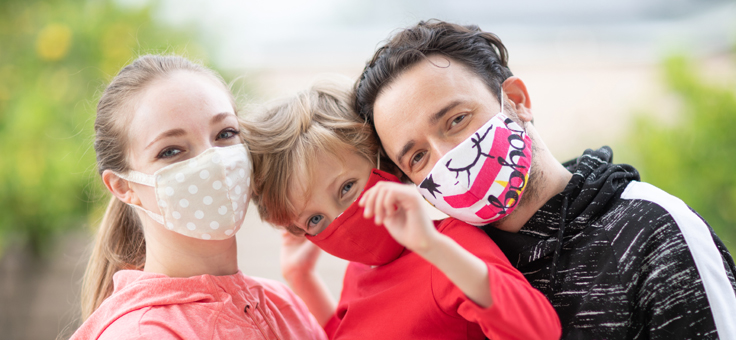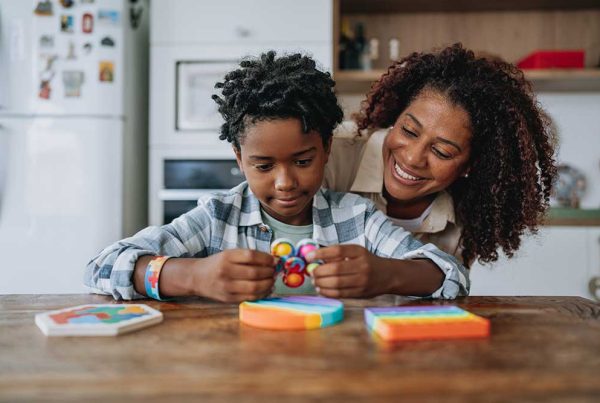Coronavirus is still very much a part of our daily lives, and it’s important we wear masks to keep ourselves and others safe. That includes kids over the age of 2, as well. And with those back-to-school doctor visits on the horizon, it’s only a matter of when, not if, your child is expected to wear one.
For many kids, though, masks might make them feel nervous or even a little scared. For those with developmental disabilities, like autism, wearing a mask can be even more overwhelming because of sensory difficulties and the challenges of adapting to new routines.
 “If you’re struggling with getting your children to wear a mask, you’re certainly not alone,” says Melissa Armstrong-Brine, Ph.D, Director of the MetroHealth Autism Assessment Clinic (MAAC). “It may take a few days or even a couple of weeks to get them comfortable with the mask, but it is possible with persistence and even a little creativity.”
“If you’re struggling with getting your children to wear a mask, you’re certainly not alone,” says Melissa Armstrong-Brine, Ph.D, Director of the MetroHealth Autism Assessment Clinic (MAAC). “It may take a few days or even a couple of weeks to get them comfortable with the mask, but it is possible with persistence and even a little creativity.”
Start Small – Introduce the Mask
Introduce the mask in a fun, positive way. Don’t dwell on the negatives of the virus but instead stress that masks keep us safe. Perhaps, with the child’s help, decorate the mask. Also, be sure to model the behavior by wearing a mask yourself.
The idea is to start small, and gradually build the child up toward wearing the mask – even if only for a few seconds. If introducing the mask becomes frustrating, take a break and try again later.
Practice – Keep it Fun
Remember that it can take several weeks for a child to become comfortable with a mask, so practice often. When practicing, be sure to do something fun – play a game, run around outside, play catch. Fun activities can show a child the mask doesn’t hurt and isn’t scary
Praise, Praise and More Praise
Don’t be shy with those high fives, tickles, hugs and verbal praise at every step. Simple statements like “I like that your mask is on your face!” or “Great job keeping your mask on!” can go a long way in building confidence and encouraging expected behavior in a child.
Distraction Doesn’t Hurt
Even the most-experienced mask-wearer can get bothered by a face covering. For kids with sensory challenges, they might be drawn to pulling or tugging at the mask. A fidget toy, or a simple activity like coloring are especially useful during doctor visits when masks are required.
If you need additional advice, reach out to your pediatrician or family medicine provider at MetroHealth. They can connect you with a behavioral health specialist who can provide additional support for you and your child. You can also contact Child & Adolescent Behavioral Health at 216-778-3745.











